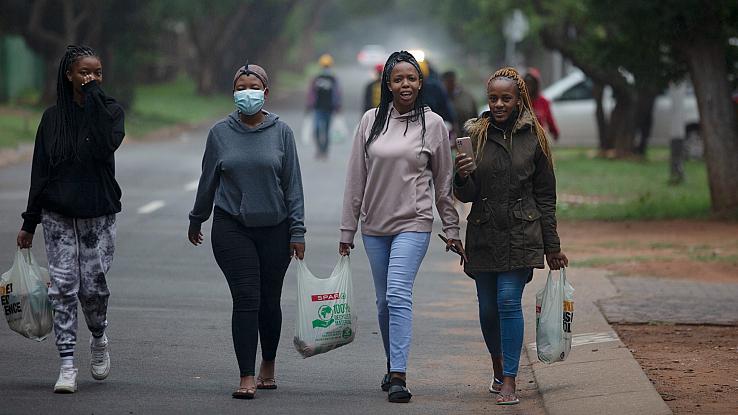Students in South Africa are worried about the new Omicron variant identified in the country.
The rise in the number of infections among the students have led to the postponement of tests and exams as explained by Nhlanhla Africa Maphosa, a student at Tshwane University of Technology.
“It was just last week when they checked stats then they realized that so many students are affected by COVID-19 at the main campus. So, which led to the postponement of tests and exams. It’s just that even though we have the stats we are not that sure what number of people are affected and other stuff. But, what we can say is that a high level, or a high percentage of students have got COVID-19”, he said.
Although it is not yet clear if the new variant causes more serious disease, many students are urging colleagues to vaccinate.
“I’m trying to encourage them so that they can vaccinate, so they can stay away from coronavirus because it’s there, it’s killing people, and now numbers are rising. When we are watching TV we can see that people are getting coronavirus, so they must vaccinate”, urged Manqoba Zitha, a former student at Tshwane University of Technology.
This university was identified as a hotspot of infections, but there are other areas affected too, according to officials.
“There is an increase in the number of new COVID cases. I remember that we would normally in the last two weeks, we had about below 50 cases per day, so we had about lower than 50 cases per day. And now that has increased to over 300 cases confirmed per day. So that tells you that the numbers are really increasing. The hotspot areas would be TUT West Campus, Hatfield, Soshanguve and Mamelodi. So those areas are of concern. What we can say clearly is that the numbers are rising in Tshwane particularly in the areas that we’ve mentioned. However, we cannot at this stage confirm whether the new variant is a factor in this increase”, said Sipho Stuurman, spokesperson for the City of Tshwane.
The new variant is thought to be highly transmissable but health profissionals are yet to establish if it causes more severe disease.





